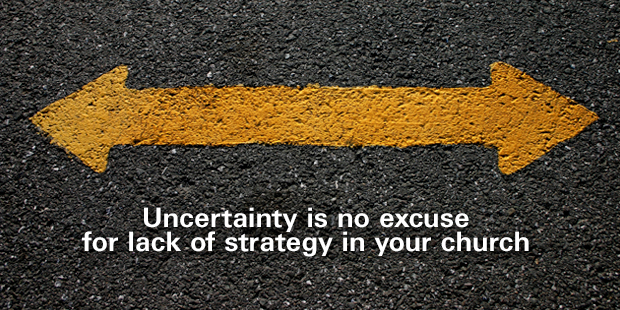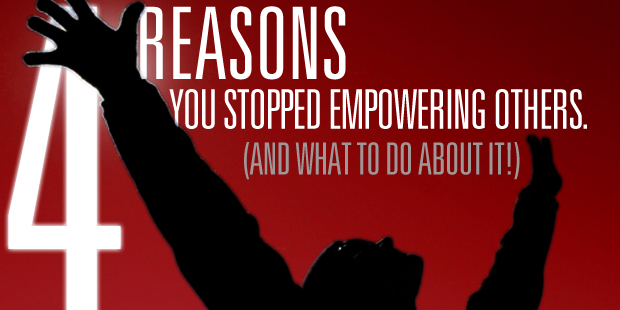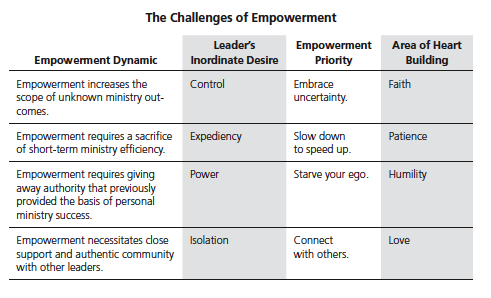
Uncertainty is No Excuse for Lack of Strategy in Your Church
When Roger Martin, of the Rotman School of Management at the University of Toronto, asks business executives about their company’s strategy — or about an apparent lack thereof — they often respond that they can’t or won’t do strategy because their operating environment is changing so much. There isn’t enough certainty, they argue, to be able to do strategy effectively.
If this is true in the business world, it is really true in churches.
Martin goes on to say,
I really wonder what makes them think so. Life is and always has been uncertain. If we live in an uncertain, fast-moving, turbulent world today, why would it be any different a week, a month or a year from now? If the world is too uncertain to choose today, what is it about the future than will make things more certain? At some point, do we simply declare the world to be certain enough to make strategy choices? How will we know it is the day? What criteria will we use to decide the requisite level of certainty has been reached? Or will we simply put off choosing forever, because certainty is utterly unachievable at any stage?
In truth every organization has a strategy. Whether it ‘does strategy’ explicitly or not, the choices that it makes on a daily basis result in the company operating on some part of the playing field (i.e. making a where-to-play choice) and competing there in some fashion (i.e. making a how-to-win choice). It matters not a whit whether the industry is highly uncertain, every company competing in it has a strategy.
Without making an effort to ‘do strategy,’ though, an organization runs the risk of its numerous daily choices having no coherence to them, of being contradictory across divisions and levels, and of amounting to very little of meaning. It doesn’t have to be so. But it continues to be so because these leaders don’t believe there is a better way.
At Auxano, our Navigators encounter the same line of thinking in their weekly conversations with church leaders across the country. To help meet this challenge, we are happy to introduce the StratOps process.
Simply put, the Paterson StratOp Process is a custom-tailored MasterPlan that develops and redefines an organization’s complete strategy by traversing the typical silo-thinking culture to unlock key moments of clarity and then putting those discoveries to action. It is a facilitated/guided process that creates an environment of breakthrough thinking for leaders, their leadership teams, and other key contributors in their organizations.
The words combined to formulate the term “StratOp” are used with striking purpose. Strategy is “the art of planning for tomorrow, today.” Operations is “the discipline of taking care of today, today.” The StratOp process takes into account both organizational and real world realities. It is the balance of managing today’s realities in light of tomorrow’s opportunities that gives the StratOp its true power. A silent third partner in the definition of StratOp is the word Financial. Both the strategic and operational must be financed.
What distinguishes the StratOp process from other strategic planning methods is that it is a behaviorally-sound process enabling leaders to manage their ministry as a whole, not as a collection of parts, vital in today’s religious environment. Each step of the StratOp process logically and systematically builds on the previous and blends together the strategic, operational, and the financial through a compelling vision of the future. The result is a breakthrough of thinking, alignment and focus. Through a “managing the whole” approach, new potential is released with astonishing results.
Results that can be implemented today, not at some uncertain date in the future.
Find out more about the Auxano StratOps process here.

Tags: Roger Martin, StratOps, Strategy, Uncertainty, Vision Frame















